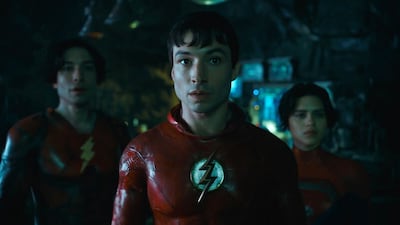It’s been almost four decades since Warner Brothers approached Teen Wolf scribe and DC and Marvel Comics regular Jeph Loeb to create a big-screen adaptation of The Flash in the late 1980s.
Big names attached since have included Dark Knight Trilogy screenwriter David S Goyer, Ryan Reynolds as lead and Night at the Museum director Shawn Levy.
It was only when DC announced plans for a cinematic universe to rival Marvel’s at 2013’s ComicCon that plans for a Flash movie – originally touted for 2016 release – finally looked like they might actually make it off the drawing board.
It would be unfair to lay responsibility for all near-40 years of anticipation at the feet of the new film, its director Andy Muschietti and lead Ezra Miller. Although with that seven-year delay, four changes of director and a bizarre promotional campaign that side-lined the leading actor due to his much-publicised personal problems, it feels like this iteration has had 40 years worth of off-screen drama around it – and The Flash does come at a crucial time for DC on-screen.
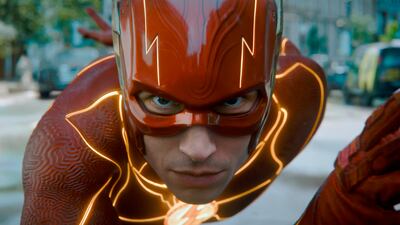
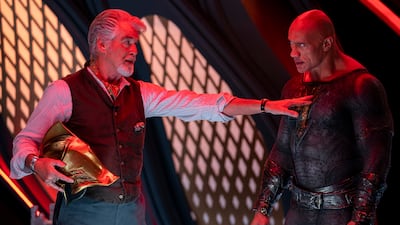
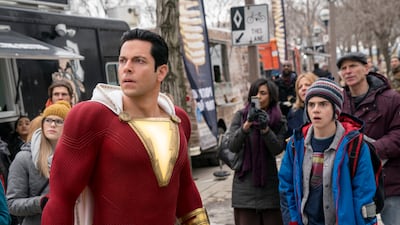


The last couple of entries to the canon – 2022’s Black Adam and March’s Shazam! Fury of the Gods have failed to excite audiences and critics alike.
Adam pulled in under $400 million at the box office – a flop in tentpole superhero movie circles – and mustered a poor 38 per cent score on review aggregator Rotten Tomatoes.
Shazam fared barely better with critics, with 49 per cent on RT, while its $133.8 million haul was the stuff of nightmares for Warner execs.
The other expected addition Batgirl, scheduled for a "2022/2023" release, was unceremoniously cancelled, despite being almost finished last August.
Now those executives will be hoping the Justice League favourite can bring some sparkle – and profits – back to the DC franchise in The Flash.
With a supporting cast of several Batmans and Supermans from different multiverses, and cameos from fan favourites such as Jason Momoa’s Aquaman and Gal Gadot’s Wonder Woman, The Flash offers plenty of familiarity to drive ticket sales. So how’s that going?
With a $139 million global opening weekend haul, The Flash has already passed Shazam’s entire recent take, but it cost twice as much to make. It’s actually tracking slightly worse than Black Adam, which earned $140 million in its opening weekend.
We shouldn’t read too much into one weekend’s data, and The Flash could yet outperform Adam. For one thing, its reviews are significantly better. Its 66 per cent RT rating is above average at best, but that could help it avoid the massive 59 per cent domestic revenue drop seen on Adam’s second weekend on release.
What could this mean for the DC universe moving forward? Possibly very little. The Flash finds itself in the unusual position of being the latest instalment in a franchise that’s already over.
Since James Gunn and Peter Safran took over the DC slate in November last year, they’ve made it clear they’ll be restarting from scratch. But they’ve also left The Flash’s position within the franchise ambiguous, likely "performance pending".
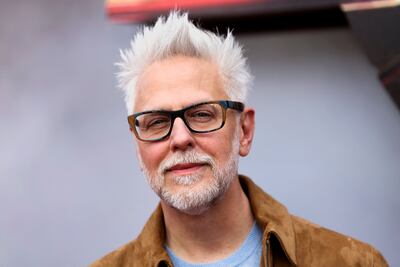
Gunn has described how the film’s timeline-bending, multiverse storyline will enable him to “reset” the franchise. If the film succeeds, it can be the one that restarted all things DC and allowed the transition from the current DC Extended Universe to Gunn’s coming DCU. If it flops, it will be the film that brought the "bad" DCEU to an end ahead of a fresh start.
Matters are slightly complicated by the fact that there are actually two more films to come from the previous DCEU management before Gunn’s Superman: Legacy is slated to kick off Chapter 1 of the rebranded DCU in July 2025.
He probably has the bases covered here too. With Blue Beetle opening in August, Gunn has revealed that “the first DCU character is Blue Beetle”. It’s not quite that simple, however, because Superman: Legacy is “the first full DCU movie”.
Much like with The Flash, it seems that if this year's Blue Beetle succeeds, he’s in. If not, well the character’s still in – just not this version.
The 2018 film, Aquaman, meanwhile, was DC’s most successful movie to date, and the only one of the DCEU crop to surpass the $1.08 billion haul of Christopher Nolan’s 2012 The Dark Knight Rises. Add the sheer force of personality of star Momoa, and there’s a high chance that when Aquaman and the Lost Kingdom closes the year in December, it will be sufficiently successful to straddle the two incarnations of the universe.
The planned 18-month break between the final DCEU film and the arrival of the DCU could be exactly what DC needs. Arch-rivals Marvel haven’t been all-conquering at the box office recently either – three of the MCU’s five worst-performing movies to date have been released since 2021, while this year’s Ant-Man and The Wasp: Quantumania only just avoids the bottom five.
Those recent underperforming films have even brought some sub-50 per cent reviews to the MCU’s RT profile – unheard of among its previous big-screen outings.
With “superhero fatigue” the current term-du-jour of the movie press, perhaps it would benefit the sanity of studio accountants, critics, and audiences alike if Marvel and DC sat down together and agreed to take a leaf from Gunn’s book – maybe a superhero amnesty until July 2025?
